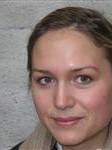MA project in comparative politics at the Institut d'Études Politiques, Paris.
PRIO supervisor: Hilde Henriksen Waage
In my dissertation, I would like to assess how Tripoli (North Lebanon) constitutes a religious field, that is, a space of struggle over the meaning of problematic concepts in Islam (such as jihad, etc.) and its effects on the collective action of the various groups of believers. The study, drawing on primary sources in Arabic and fieldwork in the region, will argue that Tripoli represents a unique gateway to assessing the conflicts between various Islamist agendas today. In my dissertation, I will show that Tripoli, a site of ideological conflicts, can be seen as constituting a fragment of the struggle within contemporary Islamism through which it may be possible to comprehend the Islamist phenomenon as such (at least since the Syrian pull out in 2005). A fragment because Tripoli has become a crossing point for representatives of most ideological currents in contemporary Islamism, such as representatives of al-sahwa, wahhabis and salafis, in addition to jihadis on their way to Iraq.
Since the Syrian pull-out of troops of Lebanon in February 2005, Lebanon has fallen into a deep institutional crisis and political paralysis. The country has not, since it disintegrated into the hands of different militias before and during the civil war (1975-1990), succeeded in one of the main tasks of state building, i.e. establishing it a monopoly of the legitimate use of force. Disarming militias was a central part in the Ta’if agreement (1989) and recalled in SC resolution 1559 (2005) but has not yet been implemented. Hence, Lebanon provides a unique geography in which different sub-state actors can settle (Hezbollah, Syrian-sponsored Palestinian militias opposed to the Oslo accords, as well as salafi jihadi groups). Tripoli’s strong Islamist credentials were gained through decades of resistance to the central state and by providing refuge for the Syrian Muslim brothers in the 70s and 80s. Demographically, the city represents a homogenous (Sunni) exception to the else multi-confessional Lebanese state.
In my dissertation, I aim to show that Tripoli lies at the heart of the national and regional contradictions. It could be argued that “the one who holds Tripoli holds the Sunni community at large”. The stake in this power struggle is the hegemony over the definition of meaning in Sunni Islam.
My dissertation will seek to answer three different sets of questions: Firstly, how did the salafis conquest the religious field in Tripoli? Second, which salafi and non-salafi figures can be found in the Sunni Islamist field in Tripoli? What are their ideological and political positions? Third, how do the same religious (salafi) references give rise to different political strategies?
Given the increasing polarization of the political space inside Lebanon, representatives of the Sunni clergy are compelled to adopt a political strategy, either pro-Hariri or pro-Hezbollah. At the same time, the internal power struggles among the clergy make these local actors tempted to solicit the material and ideological support of regional actors, to better position themselves against local rivals. To what extent do the local and regional bonds of loyalty create a dilemma for the salafi actors in North Lebanon? What are the political implications of these transnational bonds? And does the site of Tripoli have an impact on the regional scene that bypasses the purely symbolic? Can we then speak of a new hybrid political identity of salafis in Tripoli, articulated between the regional and the local scene, with transnational flux passing from Lebanon to the outer world of salafism?






